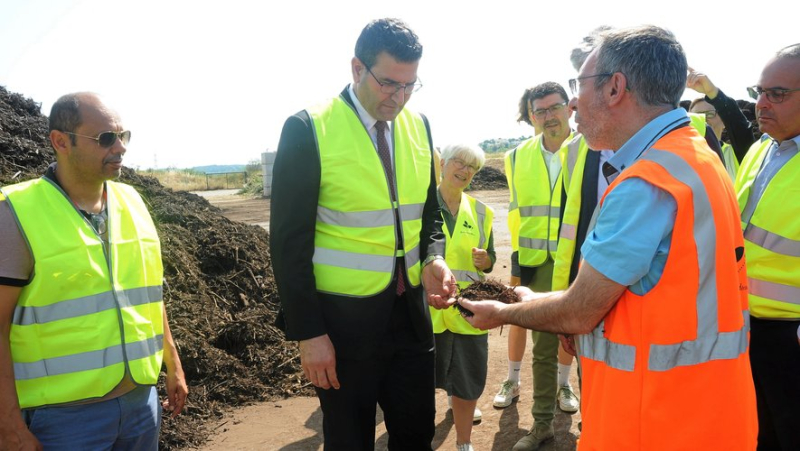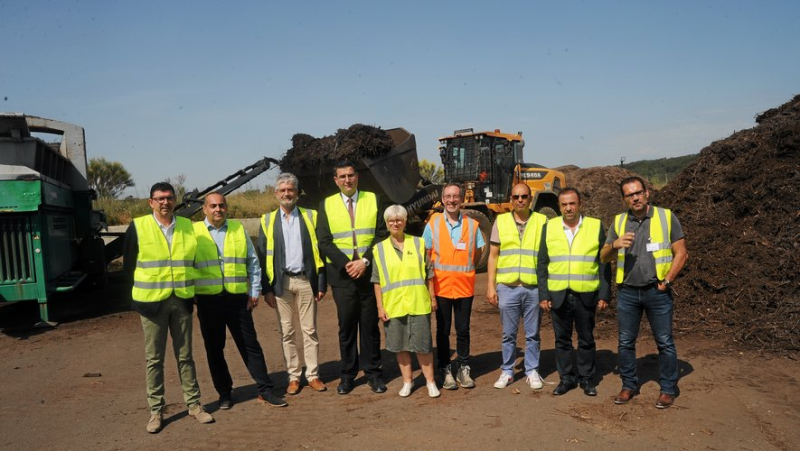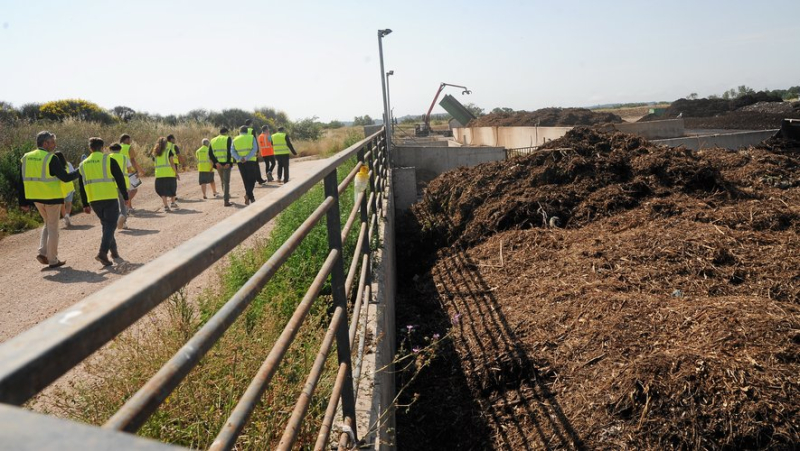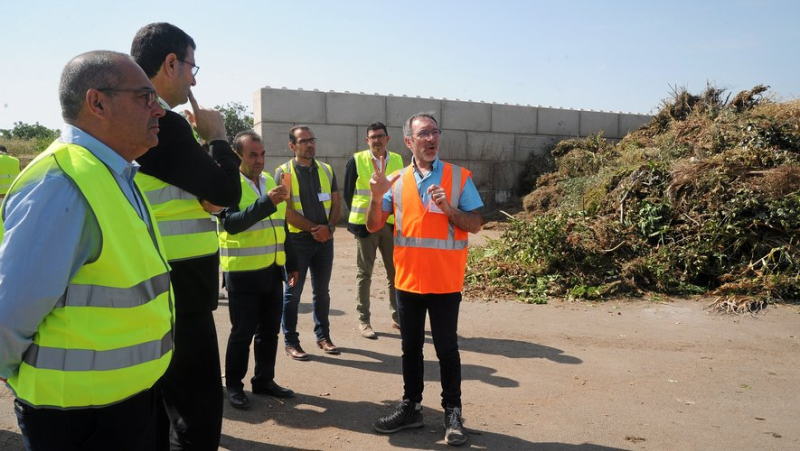Heart of Hérault: when the Lebanese Minister of Agriculture visits the Aspiran composting station

Lebanese Minister of Agriculture, Abbas Hajj Hassan, visited the Aspiran composting platform. Free Midi – JEROME MOUILLOT

The elected officials of the territory, including Olivier Bernardi, president of the SCH, accompanied the delegation. Lebanese and representatives of Ciheam. Free Midi – JEROME MOUILLOT

Composting could open up new agroecological perspectives in Lebanon. Free Midi – JEROME MOUILLOT

A droite, Arnaud Tajan, a assuré la présentation technique de la plateforme. Midi Libre – JEROME MOUILLOT
This Wednesday, June 27, the Lebanese Minister of Agriculture visited the Aspiran composting platform managed by the Syndicat center Hérault. A collaboration between this ministry and the Cœur d’Héraultaise structure could make it possible to promote this technology in Lebanon.
Serious face, impeccable black suit. This Wednesday, June 26, Abbas Hajj Hassan, circulates in the bays of the Aspiran composting station. Towering over visitors to the site managed by the Center Hérault union, the Lebanese Minister of Agriculture seems to have no time to lose. His objective: to find a ;parade to inflation and the rise in fertilizer prices which are weighing down the budget of Lebanese farmers. One of the solutions could be found there, in the Heart of Hérault, nearly 4,000 kilometers from the Bekaa plain considered the breadbasket of the cedar country. An agricultural breeding ground whose waste could be used to improve the soil.
It is still necessary to have mastery of know-how and a sector in which the Cœur d’Héraultaise structure, with its experience in this area since 2003 and of her participation in the Compost plus network since 2011, stands out as a good student. "The main issue for us is to defend a quality return to the ground. And thanks to the advocacy work of the members of the network, we were able to obtain the inclusion in the law, obligatory since January 1, of having a separate organic waste collection*. This is what makes it possible to produce quality compost", analyzes Véronique Neil, mayor of Pouzols, member of the union office and president of the Compost plus network.< /p>
Acceptability of the structure by the neighborhood, sustainability of the project, possibility of establishing collaboration between the Lebanese Ministry of Agriculture and Aspiran, the statesman mentioned several avenues. Above all, "This visit allowed us, as well as the CIHEAM-IAMM* delegation, to discuss the technical and organizational issues and challenges for installing this type of platform in Lebanon, we explain from the Ministry of Agriculture of Lebanon. "This approach is important because this pilot composting unit is only one of the components of a more global, agroecological orientation, with the development d drip irrigation systems, with more rotations, agroforestry… A whole range of initiatives that this composting unit would complete", analyzes Hatem Belhouchette, teacher researcher at CIHEAM-IAMM .
CIHEAM-IAMM: Le International Center for Advanced Agronomic Studies-Mediterranean Agronomic Institute of Montpellier develops international cooperation programs. He is at the origin of the meeting between the Lebanese Ministry of Agriculture and the Hérault Center Union. A union that is not in its first international exchanges and partnerships.
Separate green waste and organic waste streams
Biodéwaste on one side, vegetable waste from the garden on the other, for To obtain quality compost, it is necessary to separate the flows. The plant waste recovered at the recycling center is then crushed and then crushed and processed. used organic waste to produce quality compost. “At the national level, studies have been carried out ;eac;showné that the communities which collected bio-waste mixed with plants, over the years, only collected plants ;rate", reports Arnaud Tajan, head of the training center at the union. On the other hand, these same studies show that communities which separate flows more, have a much better performance collection of organic waste" and therefore better quality composting.




